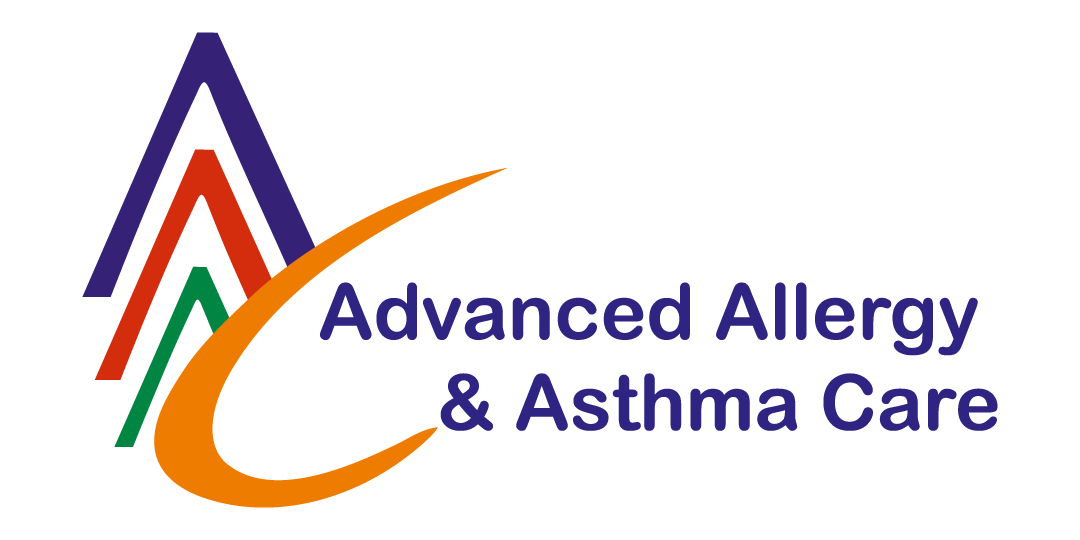Food Allergy Testing and Treatment
Home > Food Allergy

Eating Without Fear: Food Allergy Testing and Treatment
Taking the Stress Out of Mealtimes
Eating with allergies may sometimes take away the fun and excitement of a tasty meal. But with the help of food allergy testing and treatment, you can unleash your inner food enthusiast and enjoy every bite!
Advanced Allergy and Asthma Care's combination of specialized expertise, advanced diagnostic tools, personalized treatment plans, and a patient-centered approach make it an ideal choice for those seeking comprehensive care for food allergies. Our commitment to ongoing education and support reinforces our reputation as a leading allergy and asthma treatment institution
Appointment Preparations for Food Allergy Treatment
Follow these steps to prepare for your food allergy treatment appointment to ensure a safe and successful experience.
-
1. Review Treatment Details
Familiarize yourself with the specifics of the treatment. Understand what it involves, potential side effects, and any pre-treatment instructions your healthcare provider provides.
-
2. Bring Any Documentation and Medical History
- Medical Records: Bring relevant medical records, including previous allergy tests, diagnoses, and treatment history.
- List of Food Allergies: List known food allergies and any reactions you've experienced.
- Current Medications: Provide a list of medications or supplements you are taking.
- Medical ID: If you have one, wear a medical ID bracelet or carry a card indicating your food allergies and any necessary emergency instructions.
-
3. Know Your Dietary Restrictions
- Avoid Allergenic Foods: Follow any pre-treatment dietary restrictions recommended by your healthcare provider. This method might involve avoiding certain allergenic foods for a specified period before the appointment.
- Bring Safe Snacks: If the appointment takes longer than expected, bring safe snacks or a light meal to nourish yourself and prevent a food allergic reaction.
-
4. Have an Emergency Plan
- Epinephrine Auto-Injector: If you have an EpiPen, ensure it's not expired and you know how to use it.
- Emergency Contacts: Bring a list of emergency contacts, including your healthcare provider's contact information.
-
5. Ask Questions
Prepare a list of relevant questions or concerns you have about food allergy reactions. This approach might include asking about potential side effects, expected outcomes, and any post-treatment precautions.
-
6. Arrive Early
Plan to arrive at the appointment with some extra time in case of unexpected delays. Coming early also allows you to fill out any necessary paperwork.
-
7. Communicate Openly
- Inform the Staff: As soon as you arrive, let the receptionist and medical staff know about your food allergies.
- Tell Your Provider: When you meet with your healthcare provider, be clear and specific about your allergies, previous reactions, and any concerns.
Food Allergies 101: What You Need to Know
What Are Food Allergies?
An allergic reaction to food is an immune system response occurring soon after eating certain foods.
In extreme cases, food allergies lead to anaphylaxis. Seek medical assistance at the nearest healthcare facility to avoid further complications.
Common food allergies include:
- Peanuts
- Tree nuts
- Shellfish
- Fish
- Milk
- Eggs
- Wheat
- Soy
Food allergy symptoms include:
- Food allergy hives
- Itching
- Swelling
- Nausea
- Vomiting
- Abdominal pain
- Difficulty breathing
- Rash from a food allergy
Did You Know?
In 2024, it's projected that approximately 17 million individuals in the United States will have a confirmed food allergy.
Food Allergy Testing
Testing for food allergies is essential in identifying the signs and symptoms. There are several standard methods available for testing that produce accurate results.
-
Skin Prick Test (SPT)
- This test is the most common and usually the first test conducted.
- A tiny needle applies a small amount of the allergen extract to the skin.
- If a raised, itchy bump forms at the site, it indicates a positive reaction.
-
Blood Tests (Specific IgE Tests)
- This test measures the specific antibodies (IgE) produced in response to major food allergens.
- Standard blood tests include the ImmunoCAP and the RAST (Radioallergosorbent) tests.
- Results come in numerical values that indicate the level of IgE antibodies present.
-
Oral Food Challenge (OFC)
- This approach is considered the most accurate test and utilized under medical supervision.
- To check for allergic reactions, the patient ingests tiny amounts of the suspected food allergens.
-
Elimination Diet
- This method involves removing specific foods from the diet for some time and reintroducing them to observe any allergic reactions.
-
Component-Resolved Diagnosis (CRD)
- This method is a blood test that identifies specific protein components of allergens. It can help pinpoint the exact proteins causing the allergy.
-
Food Diary and Symptom Log
- A detailed record of food intake and associated symptoms can provide valuable information for diagnosing food allergies.
-
Provocation Testing
- This test is a controlled exposure to the suspected allergen in a clinical setting to observe the body's reaction.
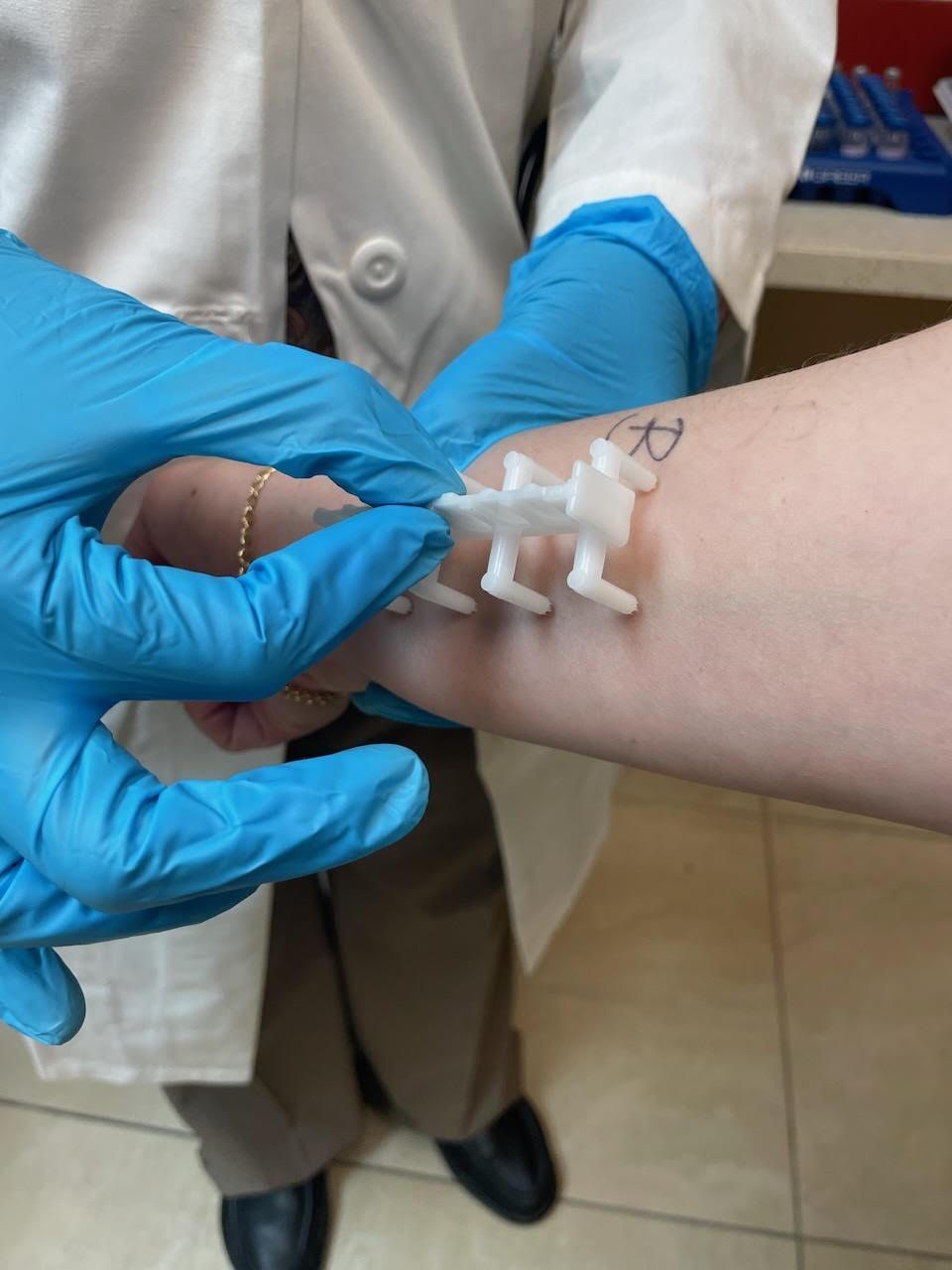
Skin Prick Test (SPT)
- This test is the most common and usually the first test conducted.
- A tiny needle applies a small amount of the allergen extract to the skin.
- If a raised, itchy bump forms at the site, it indicates a positive reaction.
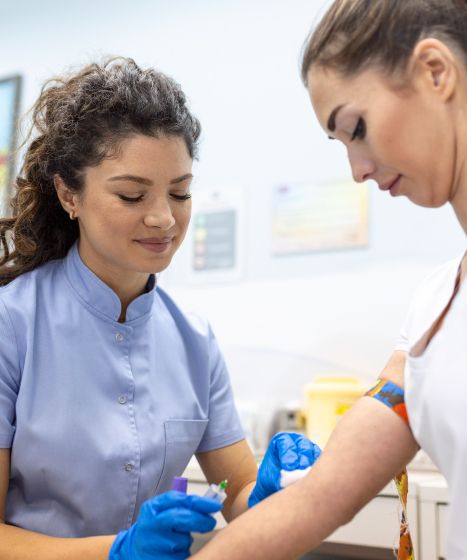
Blood Tests (Specific IgE Tests)
- This test measures the specific antibodies (IgE) produced in response to major food allergens.
- Standard blood tests include the ImmunoCAP and the RAST (Radioallergosorbent) tests.
- Results come in numerical values that indicate the level of IgE antibodies present.

Oral Food Challenge (OFC)
- This approach is considered the most accurate test and utilized under medical supervision.
- To check for allergic reactions, the patient ingests tiny amounts of the suspected food allergens.

Elimination Diet
- This method involves removing specific foods from the diet for some time and reintroducing them to observe any allergic reactions.
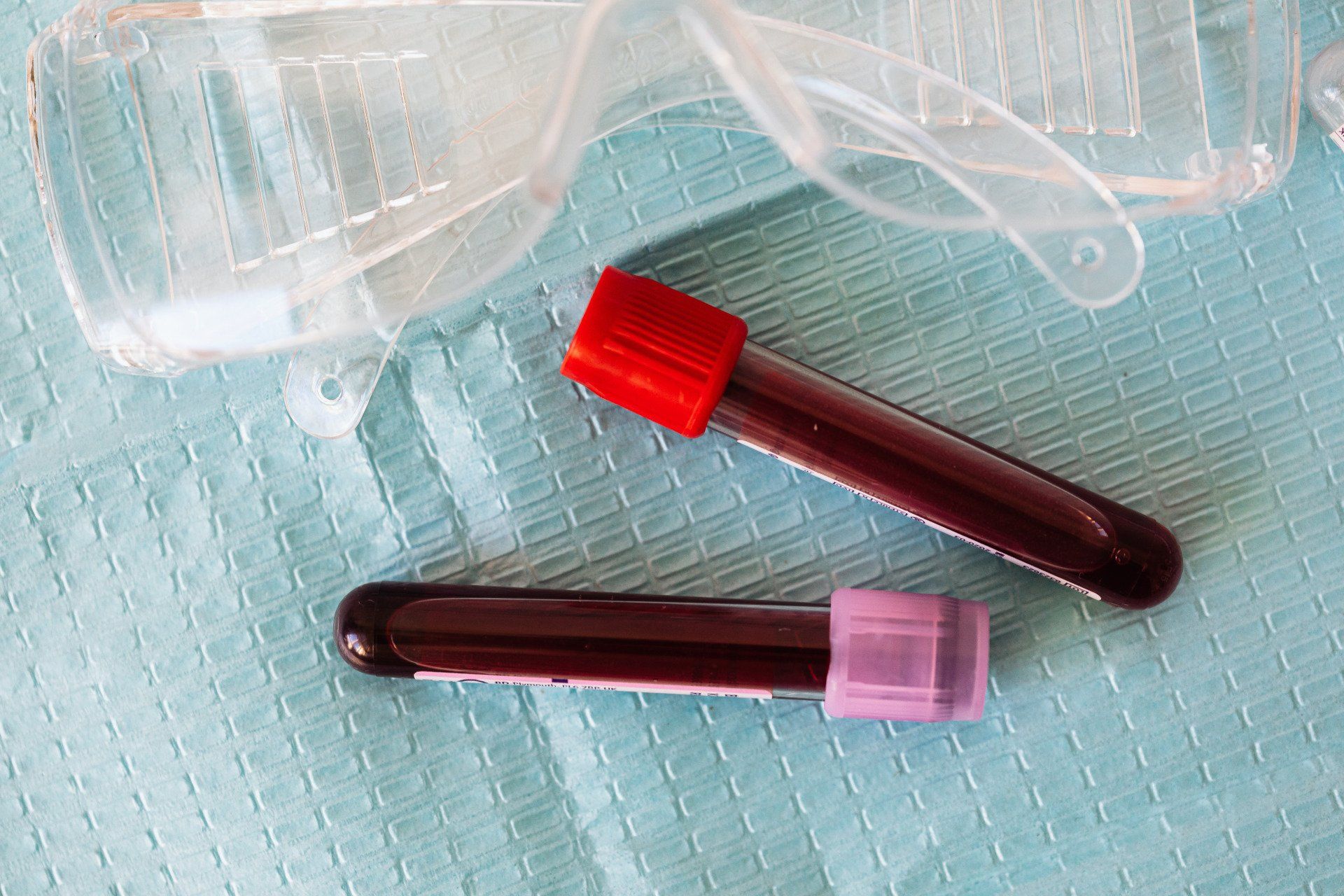
Component-Resolved Diagnosis (CRD)
- This method is a blood test that identifies specific protein components of allergens. It can help pinpoint the exact proteins causing the allergy.

Food Diary and Symptom Log
- A detailed record of food intake and associated symptoms can provide valuable information for diagnosing food allergies.
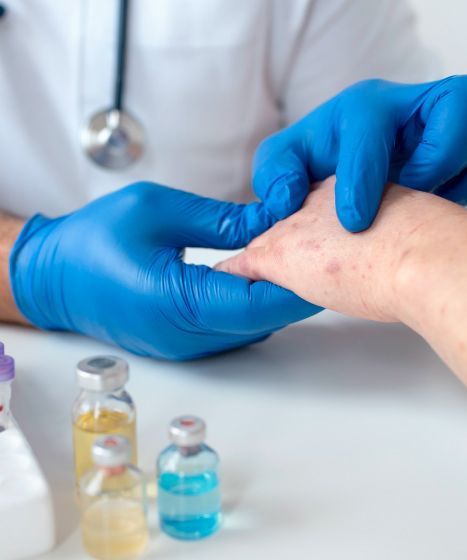
Provocation Testing
- This test is a controlled exposure to the suspected allergen in a clinical setting to observe the body's reaction.
Food Allergy Treatment
Understanding how to manage and treat food allergies is crucial for individuals and their families.
-
Diagnosing Food Allergies
Accurate diagnosis is essential for effective treatment. A food allergist uses a combination of medical history, physical examinations, and specialized tests like skin prick and blood tests to identify specific allergens.
-
Importance of Allergist Consultation
Consulting an allergist is crucial for comprehensive allergy management. They can provide personalized advice, conduct tests, and help create a customized treatment plan for food allergies.
-
Avoidance Strategies
The most efficient way to prevent allergic reactions is to avoid allergenic foods. This approach involves careful reading of food labels, asking about ingredients when dining out, and being aware of cross-contamination risks.
-
Epinephrine and Anaphylaxis
In severe allergic reactions (anaphylaxis), prompt action is vital. Epinephrine is an ideal first-line treatment. It rapidly reverses symptoms and buys time for further medical intervention.
-
Oral Immunotherapy: OIT
Oral immunotherapy involves exposing the individual to small, controlled increments of the food allergen to desensitize their immune system. This method can be a game-changer for those with severe allergies.
-
Medications for Food Allergies
Antihistamines and corticosteroids can help manage milder allergic reactions. However, these food allergy treatments are not substitutes for epinephrine in cases of anaphylaxis.
-
Dietary Modifications and Nutritional Support
A registered dietitian can guide you on maintaining a balanced diet while avoiding allergenic foods. They can also recommend suitable alternatives and supplements.
-
Emergency Action Plans
A well-defined emergency action plan is crucial for individuals with food allergies. This plan outlines steps to take in case of accidental exposure. One example is preparing a list of foods that cause hives.
Frequently Asked Questions About Food Allergy Treatment
-
What is the first-line treatment for food allergies?
The primary treatment for food allergies is strictly avoiding the allergen. This method involves reading labels, being cautious about cross-contamination, identifying food allergy signs, and making informed food choices.
-
Can food allergies be outgrown?
Some food allergies, especially in children, may be outgrown over time. However, allergies to certain foods like peanuts, tree nuts, and shellfish may persist into adulthood.
-
Are there any medications for all types of food allergies?
Antihistamines can help relieve mild allergic reactions but are not a substitute for avoiding the allergen. Epinephrine auto-injectors are ideal for severe allergic reactions.
-
How can I manage accidental exposure to allergens?
It's crucial to have an anaphylaxis action plan, which may include using an epinephrine auto-injector and seeking immediate medical attention. Always inform restaurant staff and caregivers about your food allergies.
-
What is oral immunotherapy for food allergies?
Oral immunotherapy, also known as OIT, is a treatment method that involves gradually increasing the intake of small amounts of the food allergen to which a patient is allergic. Doing so builds the body's resistance to the allergen slowly, leading to desensitization over time.
-
What is the most common food allergy?
Peanuts are the most common culprit of food allergy.
New Port Richey
Bldg. 5
New Port Richey, FL 34655
Hours:
Monday : 8:30 AM–6 PM
Tuesday : Closed
Wednesday : 8:00AM–7:00 PM
Thursday : Closed
Friday : Closed
Saturday : Closed
Sunday : Closed
South Tampa
Hours:
Monday : 8 AM–6 PM
Tuesday : Closed
Wednesday : 9 AM–
6:00 PM
Thursday : Closed
Friday : Closed
Saturday : Closed
Sunday : Closed
Pinellas Park
Prestige Park Medical Building
Hours:
Monday : Closed
Tuesday : 8 AM–7:00 PM
Wednesday : Closed
Thursday : 8 AM–6 PM
Friday : Closed
Saturday : Closed
Sunday : Closed
Dunedin
2323 Curlew Rd
Unit 6D
Dunedin, FL 34698
Hours:
Monday : Closed
Tuesday : 12 PM –6 PM
Wednesday : Closed
Thursday : Closed
Friday : 8 AM–4 PM
Saturday : Closed
Sunday : Closed
Westchase
Hours:
Monday : Closed
Tuesday : Closed
Wednesday : Closed
Thursday : 10 AM–5 PM
Friday : Closed
Saturday : Closed
Sunday: Closed
New Port Richey
Hours:
Monday : 8:30 AM–6 PM
Tuesday : Closed
Wednesday : 8:30AM–6:30 PM
Thursday : Closed
Friday : Closed
Saturday : Closed
Sunday : Closed
South Tampa
Hours:
Monday : 8 AM–6 PM
Tuesday : Closed
Wednesday : 8AM–6 PM
Thursday : Closed
Friday : Closed
Saturday : Closed
Sunday : Closed
Pinellas Park
Prestige Park Medical Building
Hours:
Monday : Closed
Tuesday : 8 AM–6:30 PM
Wednesday : Closed
Thursday : 8 AM–6 PM
Friday : Closed
Saturday : Closed
Sunday : Closed
Dunedin
Hours:
Monday : Closed
Tuesday : 12–6 PM
Wednesday : Closed
Thursday : Closed
Friday : 8 AM–4 PM
Saturday : Closed
Sunday : Closed
Westchase
Hours:
Monday : Closed
Tuesday : Closed
Wednesday : Closed
Thursday : 10 AM–5 PM
Friday : Closed
Saturday : Closed
Sunday: Closed
Hours are subject to change. You must have a scheduled appointment. No walk-ins.

